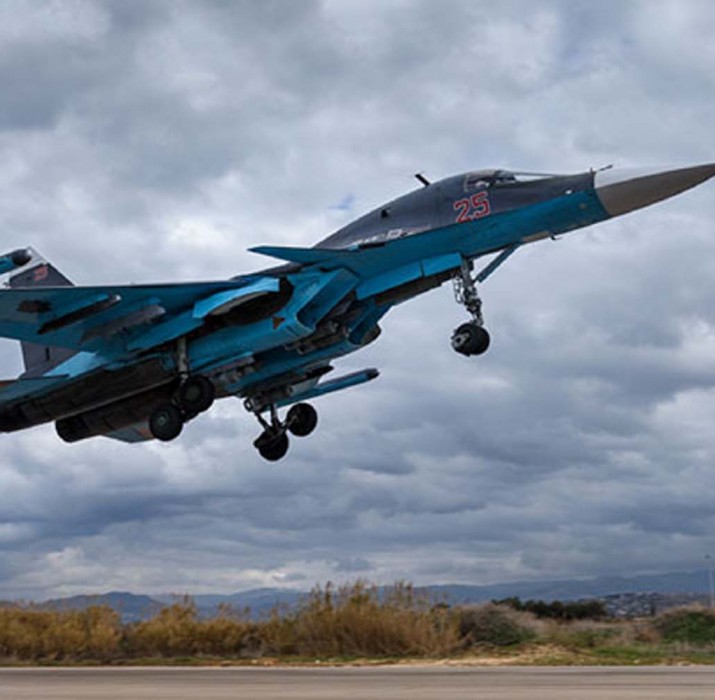The personal dimension of Putin vs Erdogan
On Feb. 2, Turkish President Recep Erdogan urgently sought an audience with his Russian counterpart, Vladimir Putin. The Turkish ambassador in Moscow relayed the message, but has, it seems, yet to receive a response.

On Feb. 2, Turkish President Recep Erdogan urgently sought an audience with his Russian counterpart, Vladimir Putin. The Turkish ambassador in Moscow relayed the message, but has, it seems, yet to receive a response.
According to the Moscow Times columnist, Matthew Bodner, the underlying conflict is Putin’s support for Syrian President Bashar Assad. When Russia intervened in Syria’s civil war at the end of September, it saved an embattled regime that Erdogan had sought to overthrow.
The incompatibility of these strategic visions has been exacerbated by a developing personal rivalry between Putin and Erdogan.
The two leaders have much in common. Both have authoritarian styles, and both have made events in Syria a cornerstone of their popularity at home. Their instinct to escalate rather than back down has created an especially fraught situation in which they could conceivably come into conflict.
“Both Russia and Turkey are confronting each other’s pride,” says Dr. Theodore Karasik, a senior advisor at the UAE-based Gulf State Analytics. “The likelihood of an escalation is high. It’s a nightmare scenario that may come true.”
First Contact
Russian planes began flying combat missions to support Assad’s beleaguered ground forces on Sept. 30. In mid-October, the Syrian military launched an assault on the northwestern region of Aleppo, a swath of territory nestled against the Turkish border and populated by Turkmen rebels supported by Erdogan.
The assault was slow to gain momentum, but Russian air support eventually gave Syrian government forces a decisive edge. Ankara was not pleased, and claimed the Russian aircraft had been repeatedly violating Turkish airspace during operations. Then, on Nov. 24, the Turkish Air Force downed a Russian Su-24 fighter-bomber.
The diplomatic fallout from the shoot-down was swift and heated, but it remained confined to rhetoric and economic retaliation by Russia. Since the incident, trade relations with Turkey have all but broken down, and Ankara is now painted in Moscow as a supporter of terrorism.
Tensions between Russia and Turkey subsided through December and January — the ongoing battle for Aleppo has yet to sway in either side’s favor. But relations once again took a turn for the worse on Jan. 30, when Ankara accused another Russian aircraft of violating its airspace.
Round Two
True to form, Erdogan lashed out. “If Russia continues the violations of Turkish sovereign rights, it will be forced to endure the consequences,” he said.
The U.S. military backed Turkey’s version of events and called on both sides to show restraint.
The calls were largely unheeded. On Feb. 1, the Russian Defense Ministry denounced the allegations as “naked propaganda,” and accused Turkish forces of providing artillery cover to Turkmen rebel forces under assault from government troops in Aleppo.
Also on Monday, the Kommersant newspaper reported that a Turkish nationalist group the Grey Wolves may have been responsible for the downing of a Russian civilian airliner over Egypt in October.
Turkey has been antagonizing Russia in its own way. On Jan. 31, Russia’s Association of International Truck Drivers revealed Turkish licenses for their truckers had not been renewed — another jab in an ever-intensifying trade war.
“With Turkmen flowing into Turkey, Erdogan is now trying to play tough … but Russia is certainly not going to change its behavior,” said Dr. Theodore Karasik, a senior advisor at Gulf State Analytics.
But Erdogan’s game of playing it tough brings serious risks, and the reasons for this are than Turkey’s options are becoming increasingly limited.
Turkey is essentially losing its struggle against Russia in Syria. In the second half of January, the number of Russian air strikes on the Turkish border increased significantly. “After several strategically important victories in the area, Russia and the Syrian government finally feel they are close to gaining more ground in Aleppo and in Latakia,” said Barmin.
These gains may be solidified in the coming days. On Jan. 3, the RIA Novosti news agency reported that Assad’s forces successfully encircled the rebels in Aleppo, cutting off their supply lines to the Turkish border.
Though Assad and his Russian allies have yet to win the war, Russia has established a de facto no fly zone in northern Syria, and Turkey’s ability to supply the rebels may be in jeopardy.
“Russia vs. Turkey is now a permanent fixture on the geopolitical map,” said Karasik. “And the key reason is that Ankara is simply not getting its way.”
Source: The Moscow Times









